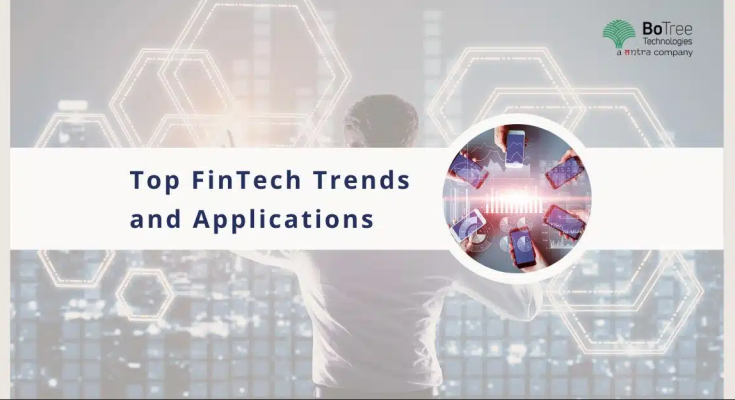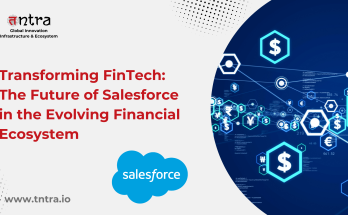Without a doubt, 2022 was an intriguing year for the financial business, from the crypto market decline to new financial guidelines and the ascent of “Digital-only” Banking. The year witnessed multiple financial technology trends that we never thought of.
The fintech business is developing with market trends to address users’ issues, business objectives, and service requests around the world. In 2023 we hope to see powerful developments shaking the financial industry. The global FinTech trends will be dictated by the goal of enriching the user experience and boosting revenues.
This article features the top FinTech trends and applications that will take centre stage in 2023.
Read More: 7 Top FinTech App Ideas for Startups in 2022
Top FinTech Trends to Look for in 2023
A top FinTech app development company keeps check of the latest trends and practices. The Fintech trends will influence everything money related, from ordinary payments to banking, so we should look at each of the latest trends in finance in detail.
- Contactless finance
- There’s no question that contactless payments are on the ascent of FinTech payment trends. Customers are progressively requesting quicker, more advantageous ways of paying for goods and services, and contactless payments offer simply that. Moreover, with the expansion of cell phones outfitted with NFC (near-field communication) technology, it’s simpler than at any other time for shoppers to make contactless payments.
- In the U.S., Apple Pay, Google Pay, and Samsung Pay are central parts of the contactless payments space. Furthermore, as per a report from PwC, worldwide mobile payment exchanges are supposed to reach $1.08 trillion by 2022-23, up from $396 billion in 2017.
- There are various elements driving the development of contactless payments. One is the consistent adoption of EMV chip cards. These cards are safer than customary attractive stripe cards, and thus, numerous retailers are presently expecting users to utilize them. This is particularly obvious in Europe, where EMV chip cards have been broadly utilized for a really long time.
- Buy Now, Pay Later
- The Buy Now, Pay Later (BNPL) is one of those FinTech future trends that has seen a ton of pushback somewhat recently. Pundits, finance specialists, and customers all over the planet considered the model as a method for advancing buyer culture in an unhealthy manner.
- It was expected that BNPL would drive individuals into debt and financial struggle while taking care of the worldwide shopping compulsion. Notwithstanding, these days, BNPL is seeing far and wide reception across the US, Europe, and the ecommerce sector as a whole.
- FinTech super apps
- A super app is characterised as an application that offers numerous services and is utilized by a large number of individuals. All in all, a super app addresses the issues of its users. Super applications are turning out to be progressively popular, particularly in the fintech space. Fintech is an industry that is ready for disruption, and super applications are strategically set up to do precisely that.
- There are a couple of key motivations behind why super applications are turning out to be so well-known FinTech industry trends. To start with, they offer an all-inclusive application to all of your fintech needs. This is helpful for users who need to have the option to get to all of their fintech services in a single spot.
- Second, super applications frequently have many partners. This gives users access to different services and products that they could not, in any case, have the option to find in a single place.
- Third, super applications are frequently developed with a mobile-friendly user experience. This implies that they are intended to be utilized on smartphones and other mobile devices.
- Financial inclusion
- As per the World Bank, 1.2 billion unbanked individuals began accessing financial services within a decade, an achievement made conceivable by the introduction of the latest developments. For example, AI-based FinTech companies enabled the delivery of FinTech app development and access at scale.
- In any case, the journey to worldwide financial consideration through custom FinTech app development is still a long way ahead, as 1.7 billion additional individuals remain unbanked, a significant number of them living in developing and underdeveloped countries.
- Accordingly, we have seen the ascent of VC interests in fintech applications in the African and APAC areas. In what has been depicted as a ‘coming-of-age,’ specialists anticipate financial services revenue in Africa growing 10% every year until 2025.
- RegTech
- A genuinely new popular expression that you might have heard in 2022 is Regtech – yet what is it, and what difference does it make? The ascent in digital products implies there is an expanded risk of data breaches, digital hacks, and illegal tax avoidance – however, that is where Regtech comes in.
- Regtech is one of the best FinTech global trends where there is a team of organizations that come together to solve the issues and challenges arising from FinTech innovations and solutions. The Regtech business is supposed to disrupt the regulatory landscape. The enterprise software development company can benefit by offering solutions to compliance issues that may arise in FinTech.
Read More: 6 Key Challenges That Highlight the Urgency of FinTech Modernization
Conclusion
The development of financial software and many developing fintech solutions will have a significant effect in 2023. Various areas should be examined as the FinTech industry is still in its beginning phases. What’s evident is that purchasers have been helped by fintech during the past three years of worldwide difficulties. As people move ahead in 2023, these 5 trends will become one of the most significant things that every software development company will explore in the financial landscape.



